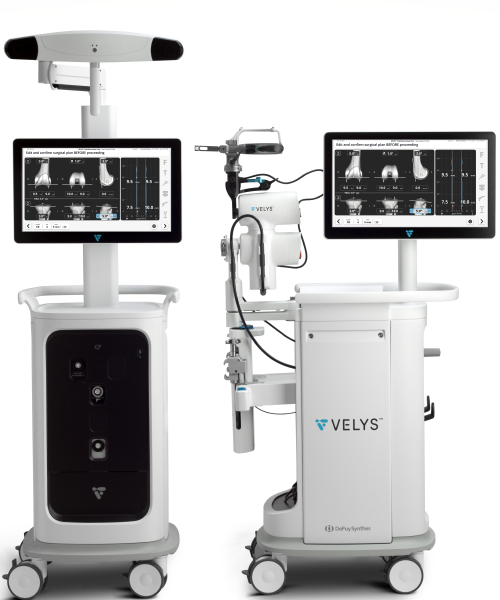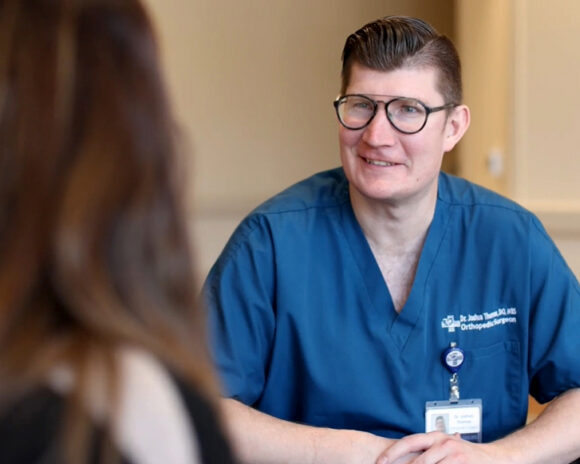Robotic-Assisted Knee Replacement Surgery
When knee pain holds you back from the life you want to live, it may be time to explore knee replacement. At Glacial Ridge Health System, orthopedic surgeon Dr. Joshua Thomas performs total knee replacement using the VELYS™ Robotic-Assisted Solution from Johnson & Johnson MedTech, bringing personalized, precision robotic knee replacement to Glenwood and the surrounding west central Minnesota communities.
Is knee replacement right for you?
Knee replacement surgery replaces damaged or worn-out surfaces of the knee joint to ease pain and restore mobility. You may be a candidate if chronic knee pain from arthritis, injury, or cartilage loss is limiting your daily activities, and non-surgical treatments such as physical therapy, medications, or injections are no longer providing adequate relief. The best way to find out is to request an appointment with Dr. Thomas. He’ll evaluate your knee, explain your condition, discuss options, and then determine a personalized plan.
Watch: Kari shares her experiences with Dr. Thomas, who now performs this procedure with robotic-assisted technology for enhanced precision.


